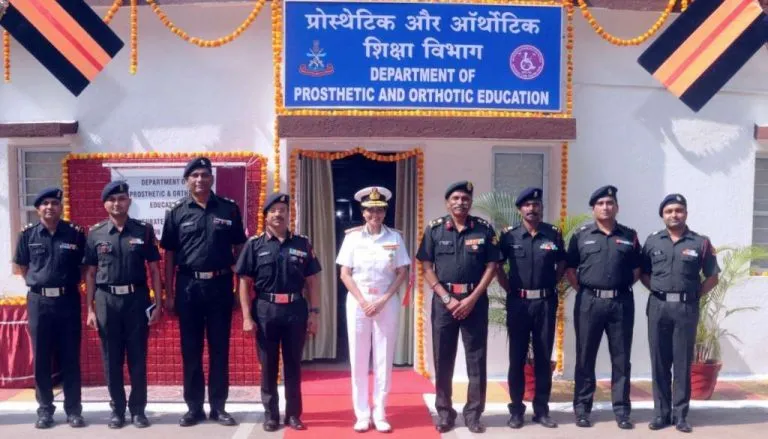Pune Army Artificial Limb Centre Unveils New Prosthetics and Orthotics Facility and Education Center
The Artificial Limb Centre (ALC) in Pune has taken a monumental step toward advancing prosthetic and orthotic care in India. With the opening of a new Department of Prosthetics and Orthotics Education, ALC aims to blend innovation with compassionate care, shaping a new generation of professionals equipped to handle modern advancements in prosthetic technology. Surg Vice Admiral Arti Sarin, Director General of Armed Forces Medical Services (DGAFMS), inaugurated the department on Friday, praising the ALC team’s dedication and high standards.
From Battlefield to Community: ALC’s Expanding Role
Originally established to support injured soldiers, ALC Pune has grown over time into a leading provider of prosthetic care for civilians. With advancements in technology—from improved materials to sophisticated biomechanics—ALC has recognized the need for skilled specialists capable of meeting the growing demand for advanced prosthetic solutions. Brigadier C.N. Satish, Commandant of ALC, emphasized the centre’s expanded mission: “We are not only serving patients but preparing the next generation to meet evolving challenges in prosthetic care.”
A Response to the Nationwide Shortage of Prosthetists
Across India, a shortage of trained prosthetists impacts both military and civilian populations, particularly in rural and underserved areas. The new department aims to fill this gap by incorporating comprehensive educational programs, including partnerships with medical universities to offer degree and diploma courses in prosthetics and orthotics. These programs combine classroom instruction with practical, hands-on training, covering essential topics such as biomechanics, patient care, and advanced prosthetic design.
“We’re addressing the shortage by training professionals who can serve in diverse settings, from urban hospitals to rural clinics,” said Vice Admiral Sarin. This initiative is expected to empower communities by providing accessible and skilled care to those who need it most.
Training the Next Generation with Cutting-Edge Curriculum
The ALC’s new education programs aim to equip students with the technical skills and knowledge required to design, fit, and maintain modern prosthetic devices. Brigadier Satish highlighted the breadth of the curriculum, which focuses on biomechanics, patient-centered care, and innovative prosthetic design. “By preparing students with expertise in these areas, we’re not just improving care but fostering a culture of innovation in prosthetics,” he noted.
In a world where prosthetic technology is rapidly evolving, having a skilled workforce that can adapt to and utilize these changes is essential. With these programs, ALC hopes to establish a model that other institutions across India can follow, creating a network of education hubs dedicated to prosthetic care.
Inspiring a National Model for Prosthetics Education
The ALC Pune’s approach has the potential to inspire other healthcare institutions across India to adopt similar educational initiatives. The impact of such a move could be transformative, creating a sustainable prosthetic care workforce that can meet the needs of an aging population and individuals with disabilities. This initiative could not only enhance patient outcomes but also drive technological progress in India’s healthcare sector.
The opening of the new department at ALC Pune marks a significant milestone in India’s healthcare journey, building a bridge between cutting-edge technology and compassionate patient care. By investing in education, ALC is laying the groundwork for a more inclusive and innovative future for prosthetic and orthotic care in India.

COMMENTS (0)
Sign in to join the conversation
LOGIN TO COMMENT